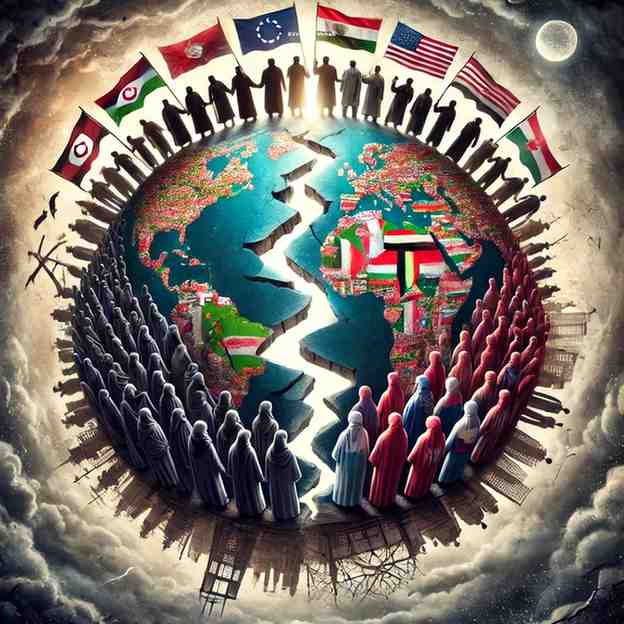Evolving Alliances: Rising Tensions Between Pakistan and Afghanistan Amid Strengthening India-Taliban Ties
In recent years, the geopolitical landscape of South Asia has undergone significant shifts, particularly following the Taliban’s return to power in Afghanistan in 2021. These changes have not only strained relations between Pakistan and Afghanistan but have also seen India recalibrating its approach towards the Taliban, leading to a complex web of alliances and rivalries.
Historical Context
The withdrawal of U.S. forces from Afghanistan and the subsequent collapse of Ashraf Ghani’s government marked a pivotal moment in the region. Many in Pakistan, including its military and diplomatic circles, initially viewed the Taliban’s ascension as a strategic victory. It was believed that a Taliban-led Afghanistan would align more closely with Pakistan’s interests, especially in countering Indian influence in the region.
However, the reality has proven more complex. Over the past four years, Pakistan’s expectations have been met with growing challenges. The Taliban’s return has not resulted in the anticipated stabilisation of Pakistan’s western borders. Instead, there has been an uptick in attacks by the Tehrik-i-Taliban Pakistan (TTP), which Islamabad claims are being orchestrated from Afghan soil. Despite Pakistan’s repeated calls for action against the TTP, the Taliban’s response has been lukewarm, further straining bilateral relations.

Growing India-Taliban Engagement
While Pakistan’s relations with the Taliban have soured, India has been quietly cultivating ties with the Afghan rulers. Historically, India has invested heavily in Afghanistan, seeing it as a critical partner for regional connectivity and a counterbalance to Pakistani influence. The fall of the Ghani government initially seemed a setback for India, but recent developments suggest a strategic recalibration.
In January 2025, India’s Foreign Secretary Vikram Misri held a meeting with the Taliban’s acting Foreign Minister, Amir Khan Muttaqi, in Dubai. This marked one of the highest-level engagements between India and the Taliban since 2021. The discussions focused on enhancing trade and economic cooperation, with particular emphasis on using Iran’s Chabahar Port to bypass Pakistani routes. Afghanistan’s Ministry of Foreign Affairs described India as a vital regional and economic partner, signalling a significant warming of ties.
This burgeoning relationship serves multiple purposes for India. Economically, it ensures access to Central Asian markets through Afghanistan and Iran. Politically, it provides India with leverage against Pakistan by fostering an independent relationship with the Taliban, thus complicating Islamabad’s strategic calculus.
Pakistan’s Concerns and Strategic Missteps
Pakistan’s reaction to these developments has been cautious but marked by underlying concern. The lack of a coherent and effective policy towards the evolving dynamics in Afghanistan has been a point of criticism among Pakistani analysts. The initial euphoria over the Taliban’s return has given way to a more sobering reality of increased security threats and diminished influence.
Former Pakistani diplomats and military officials have publicly acknowledged the misjudgment. The expectation that a Taliban-controlled Afghanistan would automatically align with Pakistan’s strategic interests has proven overly simplistic. Instead, the Taliban’s pursuit of an independent foreign policy, including its rapprochement with India, highlights the limitations of Pakistan’s influence.
Regional Implications
The evolving alliances in South Asia are reshaping the region’s security architecture. India’s outreach to the Taliban, coupled with its investments in infrastructure projects like the Chabahar Port, underscores its long-term strategic vision. For Afghanistan, India represents not only an economic partner but also a counterbalance to Pakistani influence.
Conversely, Pakistan finds itself in a precarious position. The rise in TTP attacks has compounded internal security challenges, while the diplomatic fallout with the Taliban has eroded Islamabad’s traditional leverage over Afghan affairs. The regional perception of Pakistan as a supporter of the Taliban has also led to increased scrutiny and criticism, particularly from Western policymakers.
Conclusion
The shifting alliances in South Asia, particularly the strengthening ties between India and the Taliban, present a complex challenge for Pakistan. As the regional dynamics continue to evolve, Islamabad will need to reassess its strategies to safeguard its interests. For India, the engagement with the Taliban offers both opportunities and risks, necessitating a careful balancing act to maintain its influence without compromising its broader strategic objectives.
In this intricate geopolitical chess game, the coming years will reveal whether these evolving alliances lead to greater regional stability or further entrench existing rivalries
You Might Also Like:
Parijat Industries India: Empowering Farmers and Rural Development
CM Omar Abdullah Reviews Arrangements for Sonamarg Tunnel Inauguration
Aamina Zehra Wins Silver Medal in Pencak Silat at International Championship in Abu Dhabi
Five Drug Peddlers Arrested in Baramulla: Police
Kashmir Cyber Police Arrest A Man For Blackmailing Woman From Siwal Khas, Meerut UP






